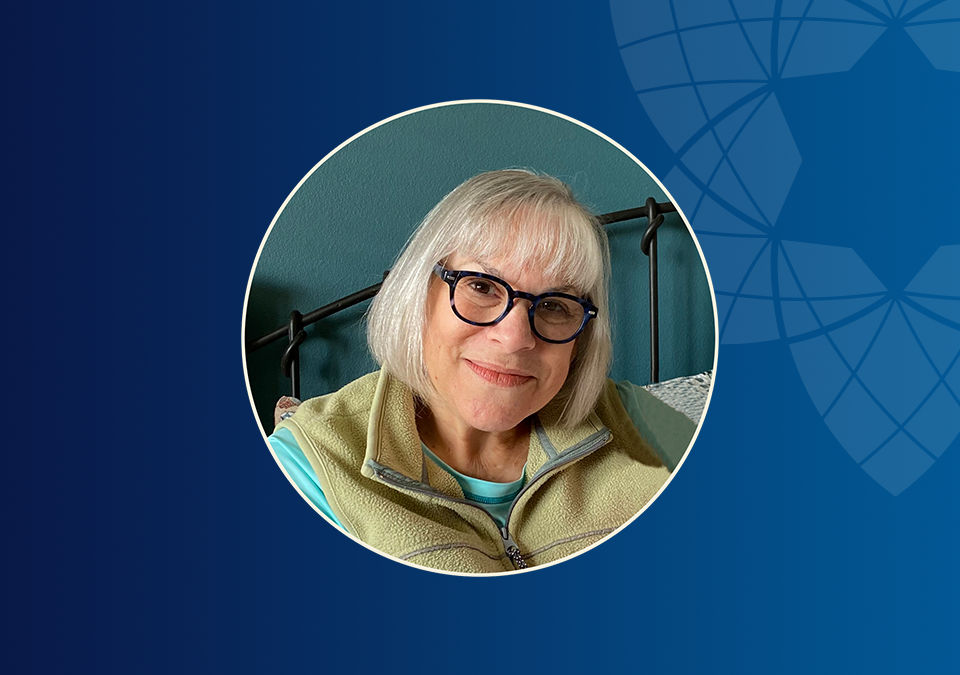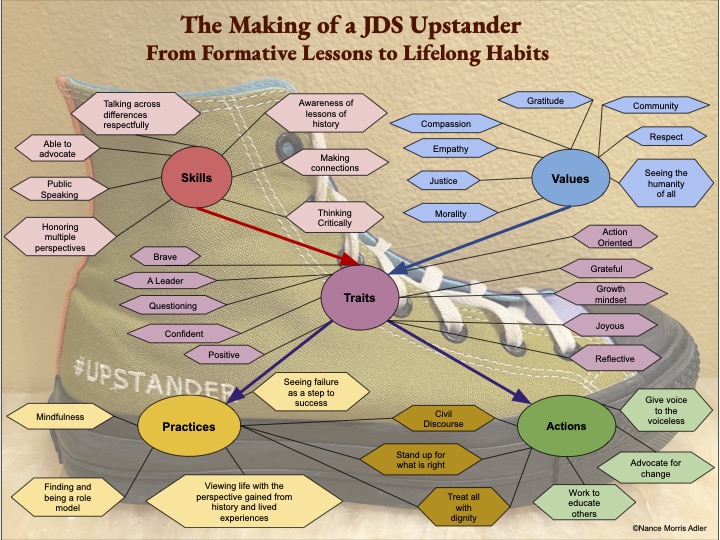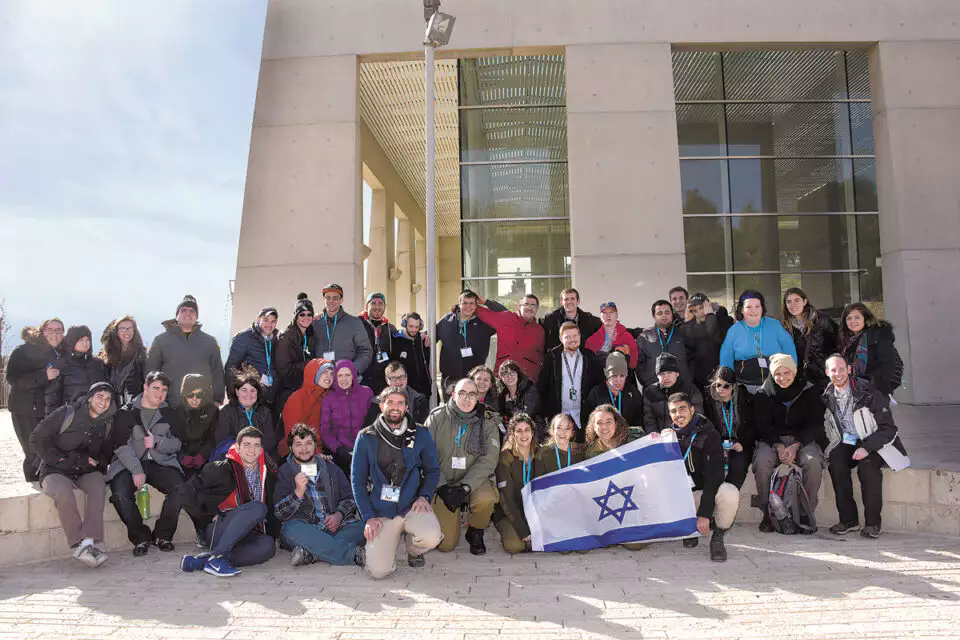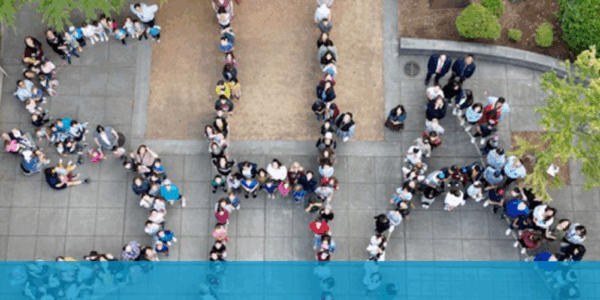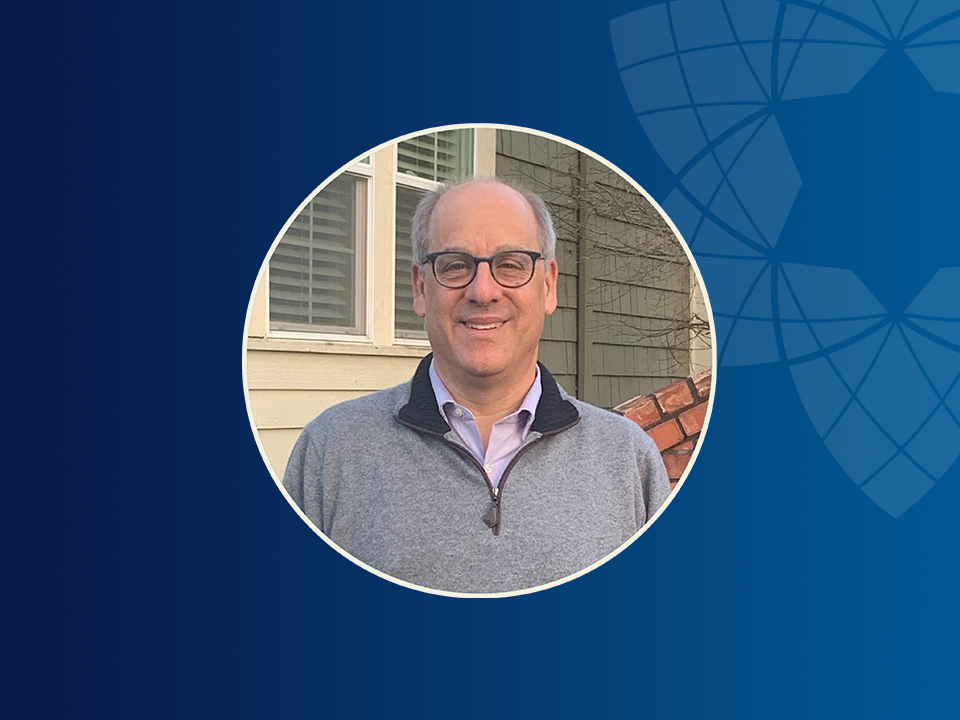
Samis Trustee Spotlight: David Ellenhorn
April 13, 2022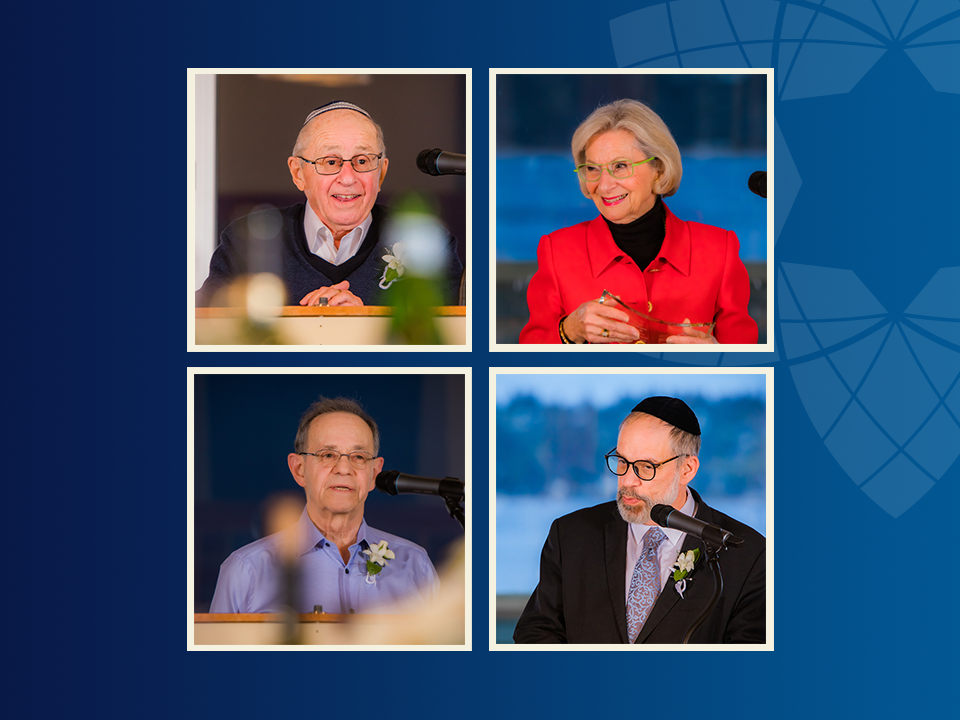
Samis Foundation Board Members Honored for their Service to the Jewish Community
May 24, 2022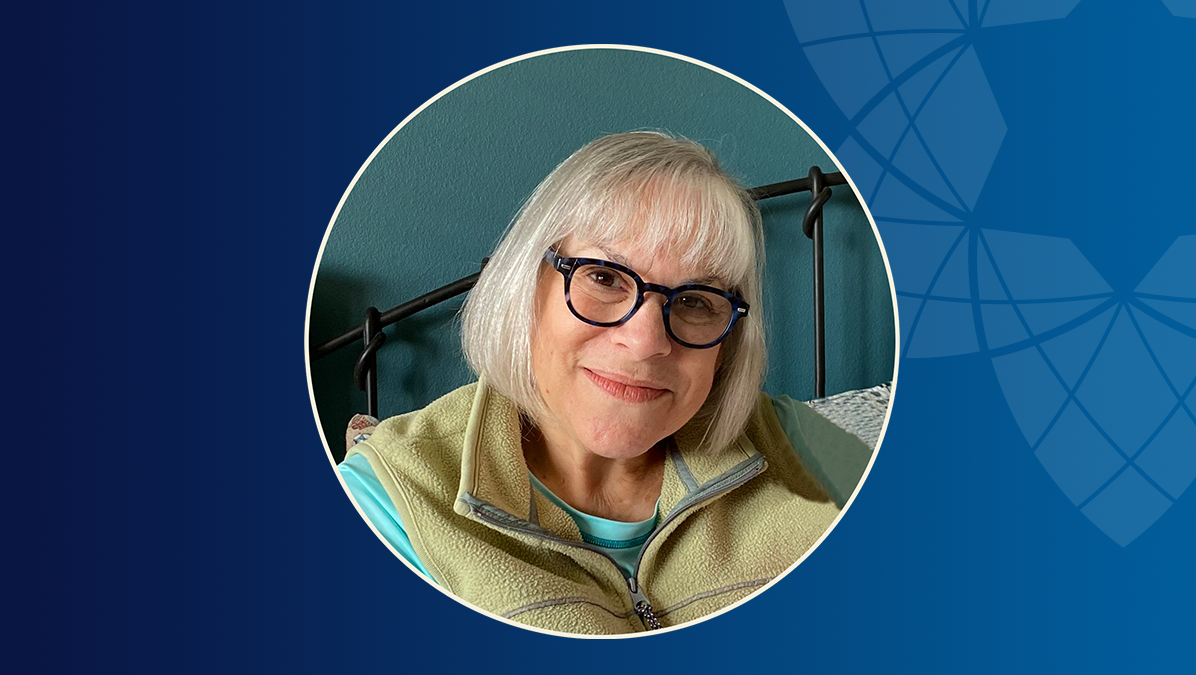
Years of Service: 3
Committee(s): Executive Committee, Grants Chair, Finance/Audit Committee, Ex Officio member of day school, experiential education, Israel sub-committees
What did you know about Sam Israel before joining the board?
I didn’t know very much about Sam before joining the board. I had heard some things out in the general community, but I knew maybe 1% of his story. In the last couple of years of being a trustee I’ve gotten to know who Sam was much better. I wish I had been in a position to meet him when he was still alive because he was quite a character, in addition to being quite a philanthropist. Since joining the Board I’ve learned what Sam cared about, and how he amassed real estate that generated good profits, and towards the end of his life how he really wanted to leave his wealth to the community, so to speak, but with some guardrails and parameters. I thought the founding of the Foundation was really interesting – Sam selected people he trusted to have a conversation with about his legacy and what was important to him. Out of that series of conversations emerged the initial Foundation board . Over the years a much larger board developed and today is much more high profile in the community. The Foundation today is very different than when Sam first put it out there that he wanted to leave his fortune to support the Seattle Jewish community and Israel, but we have been careful not to stray too far from his original vision.
What was your impression of Samis before joining the board? What were you surprised to discover as a trustee?
I would say that before joining the board I had a very narrow view of what Samis actually did and how they operated. I was one of those people that heard through the grapevine that Samis mainly funds day schools and not much else. I didn’t know about any of the Israel funding – I mean that was like the best kept secret in greater Seattle – so that’s something that since joining the Board I’ve obviously learned about. I also learned more about our ongoing commitment to send teens to Israel, overnight camps, and youth groups.
What was your path to joining the Samis Board?
Lucy Pruzan. She is a lifetime Samis trustee and I’ve had a long-standing relationship with her through Jewish leadership in our community for over 30 years. Lucy was the one who reached out to me. I had recently retired and was looking for something meaningful to do. When Lucy shared why the Samis Foundation may be a good fit at this time, I told her I would be very interested. When I was formally asked to join the Foundation, I said YES! Afterall, it is really hard to say no to Lucy – she is simply the best. I was also excited because Connie Kanter had been named the new CEO of the Foundation and I have such high regard for her. I was particularly excited about how open Connie was to expand our reach and articulate our mission and vision, and put the work and the time into developing a strategic plan. That was really what whet my appetite even further, and I am really glad I joined.
What is the most meaningful story, event, or experience you can recall related to your service on the Samis Board thus far?
There are two. I can’t just pick one! I would say that here in Washington State the most meaningful experience I’ve had to date was working as the liaison for the strategic planning process, because so much of that work, really all of that work, is the imprint for the future. I’m very proud of being a part of that team. The Board put together a phenomenal plan and we’re making progress on that plan. That’s what I like to see. I like to see a plan come to life versus just being put in a binder. So that’s been incredibly meaningful and is really our guiding star for the next several years.
In Israel the most meaningful and emotional connection for me was on my trip to Israel. As a Samis Board representative, I was very fortunate to go to Israel in the early months of 2020 which now seems like an eternity ago. That trip was chock full of getting to know some of the people, programs and investments we had already made and, also vetting new opportunities. It was wonderful to be with people on the ground in Israel, and to learn from guest scholars as well while we were there. I had been to Israel many, many times before, but I had never been through the lens of a foundation trustee which was incredibly meaningful to me.
How does your personal Jewish journey relate to the Samis mission?
My Jewish journey has had many curves and detours. I grew up in southern California in a very “Jewish light” household and by that, I mean we did Passover and Hanukkah and not much else. I’d never seen my mother or my grandmothers, for that matter, light Shabbat candles. It was just that we were Jews and we identified as Jews. But there wasn’t this imprint that I got about Jewish community and responsibility in my home. As a young person we joined a Conservative synagogue because my grandparents felt it was important for my brother to have a Bar Mitzvah. The reason why it was a Conservative synagogue was because it was close to our house.
Because we lived in a pretty non-Jewish neighborhood, I was one of 10 kids who was Jewish in my public school. As a little kiddo and throughout middle school and high school, my parents made the decision to join the Long Beach Jewish Community Center. We didn’t live super close to it, but they made the commitment to drive us there for after school opportunities and programs. I grew up in the days of the JCCs where you had Chugim (activities) to choose from. I have all these wonderful childhood memories there. I went to Jewish summer day camp for pretty much that entire time and then joined a very active tween and teen program. From the teen program I still have some of my closest friends today. That was really the beginning of me more solidly identifying as a Jew and wanting to know more and wanting to particularly embrace the cultural aspects of Judaism in a deeper way.
Then I went to overnight camp with the J as well and ended up working as a camp counselor and then as a program director. I really felt that I would be a Jewish camp director. Professionally that’s what I thought I would end up doing. I didn’t end up doing that, but I loved camp, I still love camp and I’m 66 years old. I feel like a camper when I’m in a camp, so certainly the camp piece that Samis supports is very heartfelt to me, but also the other youth programs. But that kind of experience for me at the JCC was really imprinting because in those days, it was thought that if you gave your child one of three experiences, he or she had a pretty good chance they would continue to identify as a Jew; light shabbat candles, well we didn’t do that, go to Israel, well we didn’t do that either, and summer camp, we could check that box! Then when I became a young adult, it wasn’t until I moved to Seattle and I came here for a job that I felt like I wanted to connect again. I spent the past 30 years as a lay leader and Jewish professional across a myriad of local and national Jewish organizations.
I always knew that at some point I wanted in the last mile of my career to do something meaningful professionally in the Jewish community. I had an opportunity to become the CEO of the Stroum Jewish Community Center and, truth be told, the J was not in healthy shape when I came on as CEO; it was sort of a turnaround project. From my corporate work I always enjoyed taking on turnaround opportunities, but more importantly, it was all those great memories of growing up in a JCC that I felt like this JCC should be great too. I took the job and I went there to bring life back into the heart and soul of the SJCC on Mercer Island, which is the only J in the whole State of Washington, and I did that for almost eight years before I retired. I’m so glad I took the challenge. It was the hardest job I ever had and the one I loved the most. I had a great team to work with both on the staff side and the leadership side and we moved mountains together to put the J in a very healthy position. I’m proud of that work, it was meaningful work, and you know that was sort of the capstone project of my career, which led me into retirement and now to the Samis Board.
Which area of the Foundation’s philanthropy most resonates with you and why?
I’m clearly all in with experiential education. It really resonates with me because there are so many kids in our community that are not connected or peripherally connected to their Jewish selves. And through experiencing Judaism in a different way, versus a formal Jewish day school curriculum, it’s much easier I think to opt into something that might be of interest to you. Even when we get to the point where our day schools are thriving and have high enrollment, we’re still not going to capture most kids. As a day school alum family, I truly understand and believe in the value and impact of day schools, but experiential education is important because it connects people in a different way. I would say I’m a byproduct of experiential education through camp and youth groups. Those experiences turned me into my Jewish self because I didn’t get that in my home. I hope that we can do the same thing for lots and lots of other kids in the State of Washington. That’s my hope and that’s why it’s of such high interest to me.
Israel will always be of interest and important to me because I love the land of Israel and I love the history of our people. I’m old school when it comes to Israel – my love is unconditional for the State of Israel, and I want to see it continue to thrive. The evolution that Israel has gone through in such a short period of time is pretty remarkable. The kinds of philanthropy Samis does in Israel is really important work. It’s small dollars, but high impact and I love that. That’ll always be important to me, but on the ground here in the State of Washington, experiential education is what I’m the most passionate about.
How has serving on the Samis Board thus far, impacted your perspective on philanthropy and the Jewish community?
First, I will preface this by saying that I love being in a place where I’m helping to give away money instead of having to fundraise. I’ve been a fundraiser in this community for over 30 years. It’s hard work, so this is kind of a luxury now. But it’s also a hard task. People think giving away money is so easy and it’s not. Thank goodness we have good parameters and, hopefully discipline to focus, so that our dollars are going to the right places, at the right time, and having the greatest impact.
But the things that I think I’ve learned through the Samis work is first I’ve been exposed to many other foundations. That’s been quite interesting and educational to understand how those other Jewish foundations work and what their focus is. How wide they go or how narrow they are. I really believe, I think I always thought this, but I deeply believe that partnership in philanthropy is so important and really where the future of philanthropy needs to be. I think the idea of going it alone, even if you have endless amounts of money to dole out, I think it is a mistake. I think the more that you can partner with individual donors, family foundations, large national and international foundations, will make you a stronger foundation and better informed to have a real voice at the table.
If you can double, triple or quadruple the amount of money that can go to something that’s important and needs our help – that to me, is the highest level of both doing a mitzvah and Tikkun Olam. My thinking has shifted because as a fundraiser it always felt like I had to go it alone, obviously with the partnership of the donors, but it wasn’t like I was partnered with six other organizations to fund something that was important in the community. Doing foundation work has really opened my aperture to what’s possible when you partner.
Where do you envision the Seattle Jewish community ten or twenty years from now?
I know what I would want to see, what I’ve wanted to see for many, many years, is a new generation of leadership. When I’m gone, so to speak, or at a stage in my life, where I can’t be as involved, I want to see leadership in the community that has a common goal, and that goal is to be “a united community,” as crazy as that sounds. The one thing I have been frustrated with since I’ve lived here, and I’ve lived here for 33 years and it’s only gotten more difficult, is the fragmentation around and across the Jewish community.
When I close my eyes, I want to see a community where we stop using the excuses of our limitations, “oh there’s too much traffic, oh the bridges, and the water.” I understand the sentiment that “my philosophy is different than your philosophy,” but if we can just get high enough in our thinking and give each other an opportunity to leave our communal and our individual baggage at the door and think like a community, I believe there’s hope for us. That’s what I would like to see in the future – a Jewish community that embraces itself, shares its love, warmth, programs, ideas, and opportunities and stop limiting ourselves by either our own thinking, insecurities, or just bad attitudes. If that could happen in 20 to 30 years, I would be happy. I’m an optimist, which is why I continue to lead in our community with a strong dose of reality and a big bag of dreams.
It’s also very clear to me now that when you have a great, talented, smart, and motivated team of professionals, coupled with smart passionate committed lay leadership, and we come together with open minds, it can be really powerful and important and magical things can happen.

